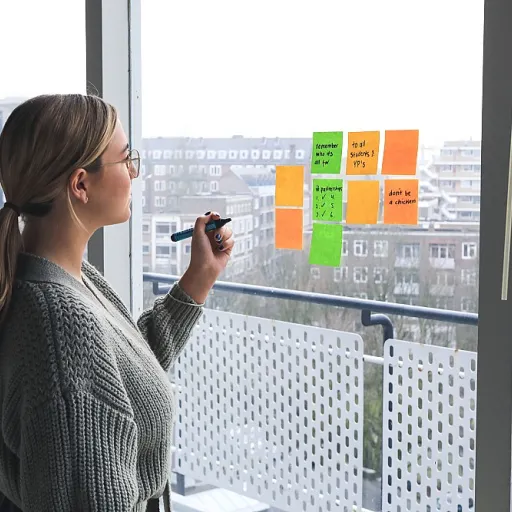
Understanding the Role and Responsibilities
Delineating Your Job Role and Duties
In an HR job interview, gaining a clear understanding of the role and responsibilities you are applying for is essential. This not only helps in shaping the right expectations but also sets the stage for a successful career progression. Here are some crucial questions to ask to get a better grasp of what the position entails and how it aligns with your career aspirations:- What are the primary responsibilities associated with this role within the company?
- How does this position fit into the broader objectives of the team and the company?
- Can you describe a typical day or week in this role?
- What are the immediate priorities for this position once someone is hired?
- Are there any performance management criteria that the team uses to evaluate success in this role?
Company Culture and Values
Exploring the Company’s Core Values
When preparing for an HR job interview, understanding the company culture is crucial. This goes beyond just knowing the company’s mission statement. It involves delving into the core values that drive the organization. During the interview, consider asking questions that reveal how these values are reflected in daily operations and decision-making processes. This can help you determine if the company is a good fit for your own professional values and work style.
Assessing the Work Environment
Inquiring about the work environment can provide insights into the company culture. Ask about the team dynamics and how collaboration is fostered among employees. Understanding how the company supports teamwork and communication can give you a clearer picture of what it would be like to work there. This also ties into the role you are applying for, as knowing how your potential team operates can help you gauge your fit within the group.
Understanding Employee Recognition and Support
Another important aspect of company culture is how employees are recognized and supported. During the interview, ask about the company’s recognition programs and resources available for professional development. This can include questions about performance management and how the company supports career growth. Understanding these elements can help you see how the company values its employees and invests in their long-term success.
For more insights on how to effectively engage with senior leaders during your HR job interview, check out this guide on essential questions to ask senior leaders.
Career Development Opportunities
Exploring Professional Growth Within the Organization
When you're exploring new job opportunities, understanding the potential for professional development within the organization is crucial. Interview questions about career growth can significantly impact your decision in aligning with the company's long-term vision and your own career aspirations. During the interview, consider asking the hiring manager about the policies and resources the company has in place for employees seeking to advance their skills and careers. Here's what you might consider:- Training Programs: Inquire about any available training sessions or workshops aimed at enhancing employee skills. Does the company offer resources, such as online courses or seminars, as part of their professional development strategy?
- Mentorship Opportunities: A question regarding mentorship can reveal how the company supports its employees in navigating their career paths. Does the team or department encourage mentorship programs where experienced colleagues guide newer employees?
- Career Pathways: Understanding what career pathways exist within the company can help determine whether this position aligns with your ultimate career goals. What does the typical progression look like for this role within the organization?
Team Dynamics and Collaboration
Building Cohesion and Collaboration: Understanding Team Dynamics
In your job interview, it's essential to inquire about team dynamics and how collaboration is encouraged within the company. Understanding the existing team synergy and the processes in place for effective teamwork can provide insight into the role you may play in maintaining balance within the group. Consider these questions during your conversation with the hiring manager:- How does the team work together on key projects? – Knowing whether collaborative tools or regular meetings are implemented can give you an idea about communication within the team and how resources are managed.
- What is the team's approach to conflict resolution? – Every team faces challenges. Find out how conflicts are addressed can offer a glimpse into the company culture and whether it aligns with your values.
- Can you tell me about a successful project recently completed by the team? – This gives a better understanding of what the team can achieve and the role you might play in future successes.
- How does the company support team-building activities? – Looking beyond work responsibilities, see if there are programs that encourage team bonding, which are crucial for fostering strong interpersonal relationships among employees.
Challenges and Success Metrics
Key Performance Indicators and Improvement Metrics
As you engage in the HR interview process, it's vital to delve into the challenges and success metrics associated with the position. Understanding these elements can provide clarity on what is expected of you and how your performance will be measured. Below are some important questions to consider asking the hiring manager:
- What specific key performance indicators (KPIs) does the company use to assess the success of individuals in this role?
- Can you share examples of challenges someone in this position might face, and how the company supports employees in addressing them?
- How is success defined for this role within the company culture, and what does progress look like over time?
- What recognition programs are in place to reward high-performing employees, and how does this reflect on the company's values?
By addressing these questions during your interview, you can gain insight into the company's expectations and whether their approach aligns with your career development goals. It not only aids in assessing the role but also in determining if the company's performance management strategies reflect your values and professional ambitions. This thoughtful inquiry will help you decide if you are a good fit for the team and whether the role supports your long-term career aspirations.
HR Department's Strategic Goals
Aligning with the HR Department's Vision
When preparing for an HR job interview, it's crucial to understand how the HR department's strategic goals align with your career aspirations and the overall company objectives. This understanding not only helps you determine if you're a good fit for the role but also provides insight into how you can contribute to the company's success.
During the interview, consider asking questions that reveal the department's priorities and how they integrate with the company's long-term vision. Here are some questions you might consider:
- What are the key strategic goals for the HR department this year? This question helps you understand the department's focus areas, whether it's enhancing employee engagement, refining performance management systems, or improving the hiring process.
- How does the HR team support the company's overall mission and values? This will give you insight into how the HR department contributes to the company culture and values, which you might have explored earlier in the interview.
- What role does the HR department play in shaping company policies? Understanding this can provide clarity on how HR influences employee resources and policies, ensuring they align with the company's strategic goals.
- How does the department measure success? Knowing the metrics used to evaluate success can help you gauge the department's priorities and how your performance will be assessed.
These questions not only demonstrate your interest in the role and the company but also help you assess if the HR department's goals align with your professional development plans. By understanding the strategic direction of the HR team, you can better position yourself as a valuable candidate who is ready to contribute to the company's growth and success.












